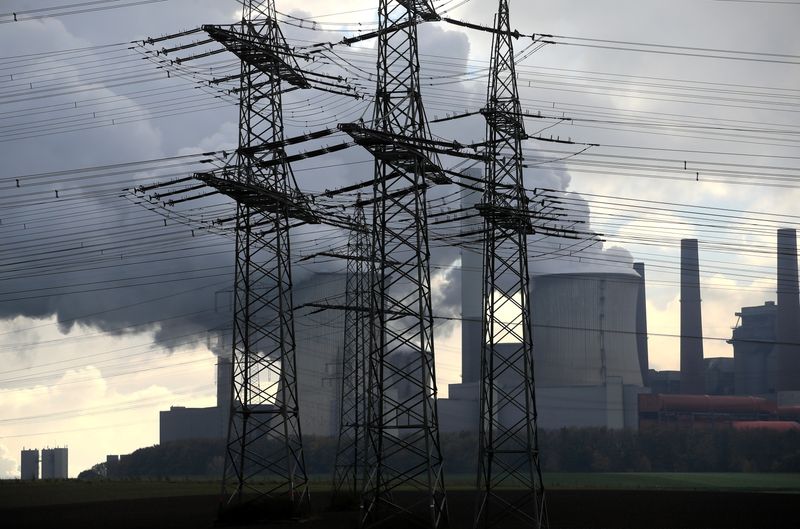By Riham Alkousaa
BERLIN (Reuters) - Germany will struggle to meet key climate targets under its current trajectory for greenhouse emissions cuts, a climate expert council that advises the government said on Friday ahead of global climate talks.
Germany aims to become carbon-neutral by 2045 and cut 65% of emissions by 2030 compared with 1990, but current reduction rates are falling short, the first biennial report by the council showed.
"The annual reduction amount would have to more than double compared to the historical development of the last 10 years," with a 10-fold increase needed in the industrial sector and 14-fold in transportation, council member Thomas Heimer said on Friday.
Germany tightened its climate protection law last year and its new government, with a push from its Greens party coalition partner, has set an ambitious goal to accelerate renewable energy expansion to 80% of electricity by 2030.
But, hampered by red tape, local opposition and supply chain bottlenecks for components from China, Germany is also behind the curve on meeting that goal, the report found.
The energy sector contributed almost half of Germany's 27% CO2 reduction between 2000 and 2021, while the construction, transport and industry sectors, after a good start, have been sluggish to cut emissions in the past decade.
A fall in Russian fossil fuel imports, triggered by Moscow's war in Ukraine, has also pushed Germany to reactivate and extend the life of heavily-polluting coal-fired power plants.
The council said the transport and construction sector needed to be restructured to reverse the trend. A change in consumer behaviour was also necessary and the government should impose strict limits on emissions volumes for all sectors, it added.

"Oil and gas heaters will have to disappear from basements sooner, and diesel and petrol engines will have to disappear from the streets sooner," added Tobias Austrup, an energy expert for environmental group Greenpeace.
Nearly 200 countries will gather in Egypt next week for climate talks, as pressure for tougher action to tackle global warming grows.